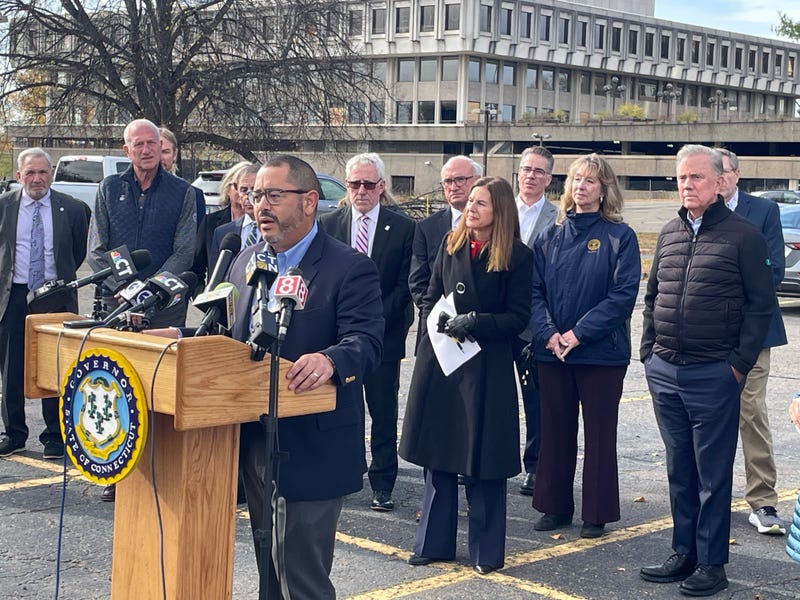
(EAST HARTFORD—WTIC News) Incentives, rather than mandates.
That’s the approach of Connecticut’s new Housing Growth Bill.
The compromise plan, reached after months of negotiations following a much-debated veto from Gov. Ned Lamont, will go before a special session of the General Assembly next week.
The new bill offers incentives, such as additional funding for schools, for towns and cities to initiate new, affordable housing to alleviate Connecticut’s housing crunch. The previous plan, vetoed by the governor, would have required that communities take part, via “fair share” mandates.
At a press conference on a vacant parking lot where new apartments will be developed, Lamont said the state wants to partner with municipalities.
“We want to take these underutilized pieces of property,” said the governor, “like old shopping centers, like semi-empty commercial buildings, and I want to turn them back into something vibrant, where young people can afford to start a family or buy their first home, where seniors and parents (my age) can afford to downsize.”
Democrats who favored the tougher bill, like House Majority Leader Jason Rojas (D-New Haven), riticized the governor’s veto over the summer, but returned to the table. Mary Calorio, regional town administrator for Chaplin, Pomfret and Canterbury, now says the veto brought community leaders, lawmakers and the governor’s office together for productive deliberation.
“It really gave us a chance to really come together as a state, municipalities, regional leaders to craft a more workable solution that balances statewide housing goals with local realities.”
“Housing is at the core of economic vibrancy,” said Rojas. “The bill that we have come to agreement on is really going to advance Connecticut and our ability to achieve (our) goals.”
As with the previous plan, leaders of affluent towns expect resistance from “not in my backyard” (NIMBY) types.
“We have people that feel they worked very hard to get where they’re at, why should they have to have something possibly devalue their home if it’s built next door?” said First Selectman Rudy Marconi (D) of Ridgefield. “None of that is true, but it’s a conception that people have. So, we have to educate those people in our towns.”
“The fears of change are so great,” said Hartford Mayor Arunan Arulampalam, “but when they actually come, it feels inevitable and it addresses a core need.”
Some Republican town leaders, including North Haven First Selectman Michael Freda and outgoing Stratford Mayor Laura Hoydick, joined Lamont at Friday’s press conference in support of the new bill.
House Minority Leader Vin Candelora (R-North Branford), who did not attend, was more cautious, saying, “I'm glad to see that municipal officials who previously raised concerns are now speaking in more positive terms about this revised version. This shift demonstrates that the Governor was justified in vetoing the original legislation, which overreached significantly."
